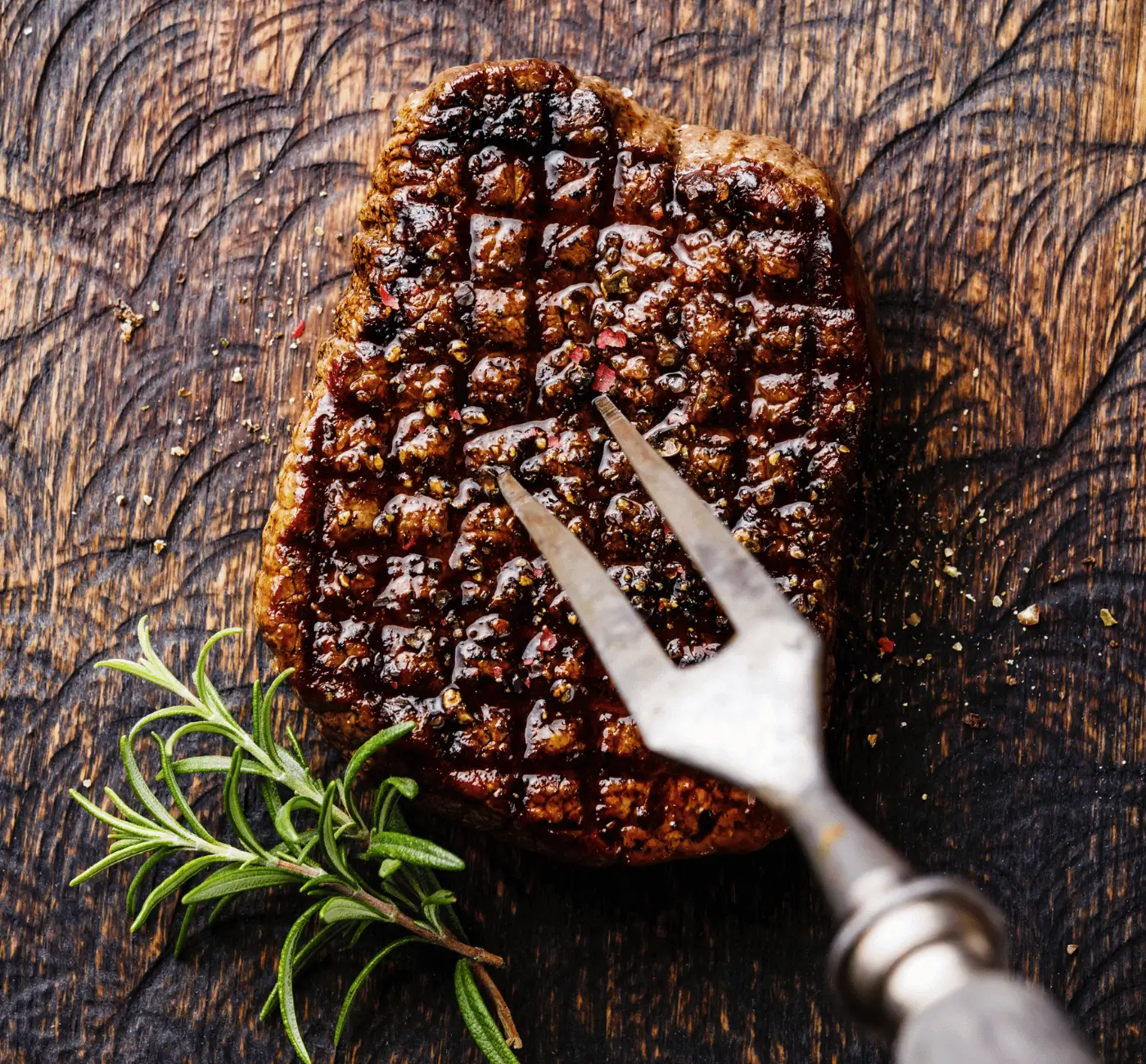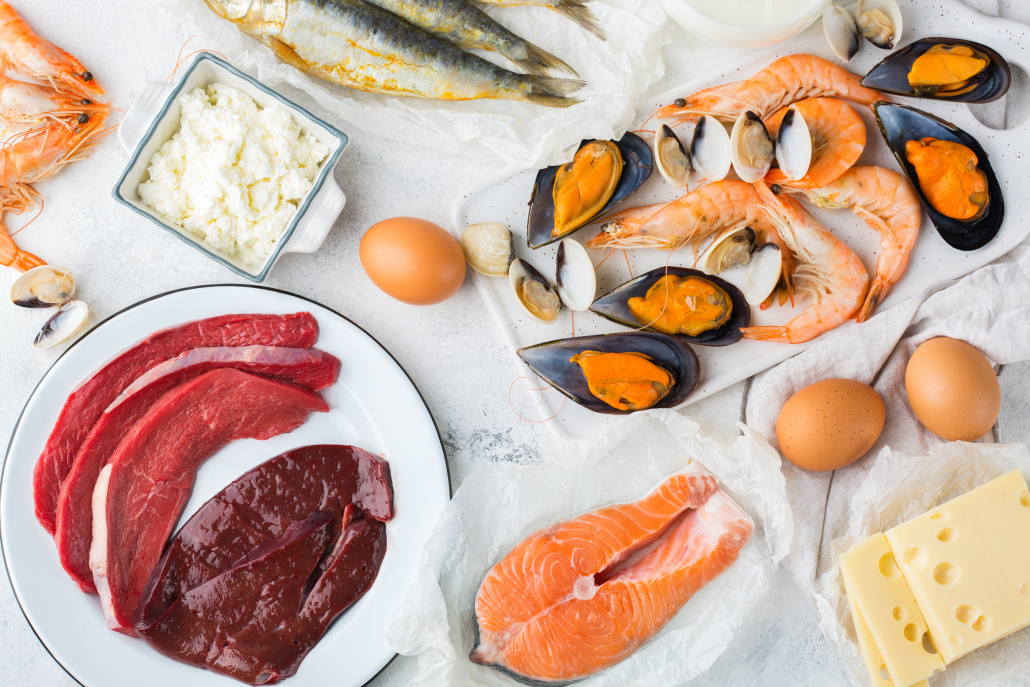
Like most dietary topics, identifying the most nutrient dense foods on earth is subject to bias and misinformation. There are nutrient-dense food lists out there that rank potatoes and garlic among their top 10, which is simply ludicrous!
Nutrient density means the combination of essential macronutrients (fat and protein), along with an array of vitamins, and minerals per calorie. The truth is that the most nutrient dense foods all come from animal sources. Full stop.
If you want to make your calories count towards your nutrition goals, this list is the place to start.
Let’s dive in.

Beef liver comes in at number one on our list of most nutrient dense foods. Commonly referred to as “nature’s multivitamin,” a 3.5 ounce serving of beef liver exceeds many of the minimum recommended daily intake of numerous hard-to-get nutrients. It’s also a rich source of protein.
Let’s take a look at some of the key nutrients found in abundance in beef liver:
Found only in red meat, heme iron is vital for many physiological functions. It plays an essential role in the formation of red blood cells, energy metabolism, immune function, cognitive ability, and fertility [1] [2] [3] [4]. The heme iron in red meat is far more easily absorbed and used by your body than the non-heme iron in plant foods [5].
Your body produces nucleic acid on it’s own, but its ability to do so decreases with age. And when the body is stressed, there can be greater demand for nucleic acids than the body can generate.
Though you won’t find nucleic acids on a nutrition label, Beef liver contains uniquely high amounts [8].
Nucleic acids in food can contribute to numerous health benefits, including [9]:
Beef liver is rich in B vitamins that may help you stay energized and lose weight. These vitamins are known as lipotropic, or fat-liberating. Research shows that the B vitamins found in liver can support the health of your own liver. [10]
Beef liver an excellent source of the B vitamin folate, critical for healthy fetal development. [11]
Yet another example of the like-supports-like concept of organ meats is the cytochrome P450 found in liver. Cytochrome P450 is an important family of liver enzymes that assist with hormone production, detoxification, and the overall health of your own liver. [11]
Beef liver is one of the worlds richest sources of vitamin A. In fact, there is so much vitamin A in liver that it should be consumed in limited quantities, and not every day. This vitamin comes in various forms including b-carotene and preformed A. They are essential for maintaining healthy skin and vision [12][13].


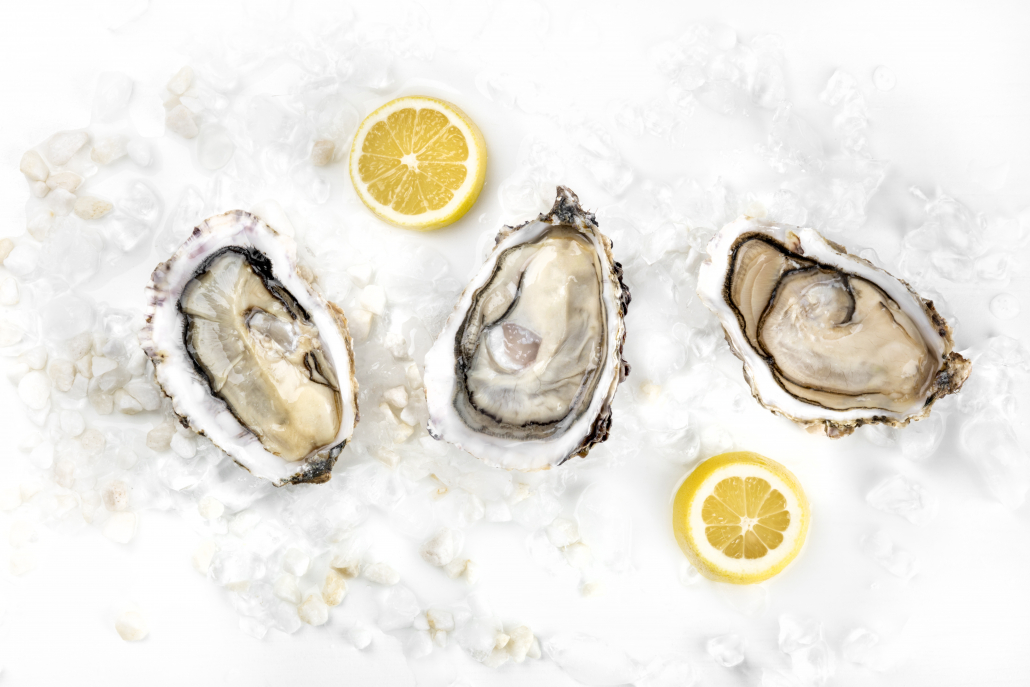
These mighty bi-valves are some of the most nutrient dense and beneficial foods on earth. The nutrient profile of oysters makes them a food that can:
Oysters are remarkably rich in vitamin D, zinc, and selenium, three hard-to-get nutrients that work in synergy to support a healthy immune function [15].
Adequate vitamin D intake has been found to reduce the risk of respiratory infection by up to 70% [14]. Not getting enough D3 from diet and sunlight may result in various negative symptoms including depression, multiple sclerosis, and an impaired immune response. While studies show that vitamin D3 can help you fight viral infections including Covid-19 [15][16][17].

Salmon eggs are one of the earth’s most nutrient-dense superfoods. Salmon roe is loaded with highly bioavailable vitamins A, B, D, and K2, zinc, iodine.
They’re also a great source of omega-3 fatty acids EPA and DHA, which have been shown to support healthy brain function [18].
The abundance of nutrients in salmon roe including robust amount of B12, selenium, along with vitamin D, and E all contribute to various health benefits including:
You can explore salmon roe’s superfood benefits in-depth here.


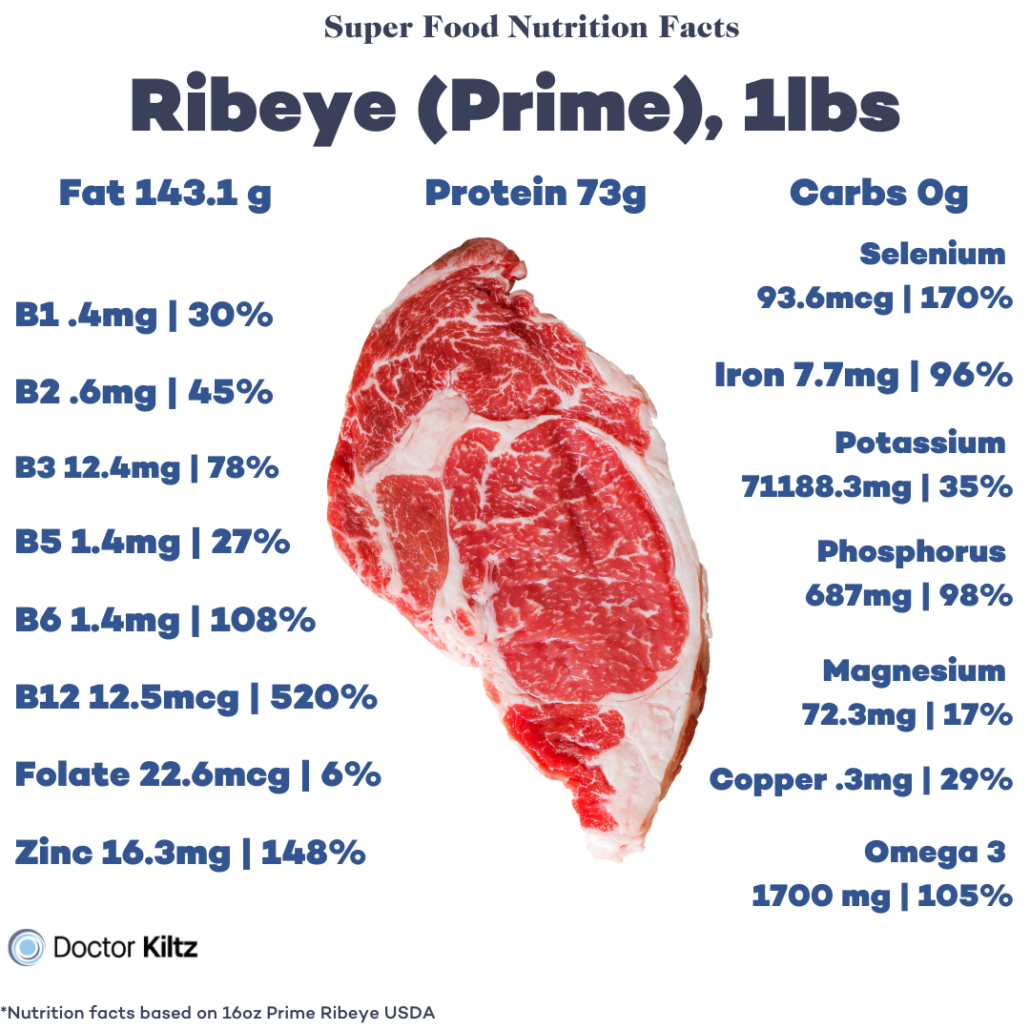
Ribeye steaks are one of the most popular cuts of steak due to their tender juicy texture and rich flavor. And they happen to be one of the most nutrient dense foods on earth.
If you’re practicing a carnivore or ketogenic diet the ribeye is one of the fattiest cuts of keto meats here.
In addition to robust protein and nourishing fats, ribeye also provides robust amounts of B vitamins, zinc, selenium, and beneficial compounds only found in meat. compounds.
These meat-specific compounds include:
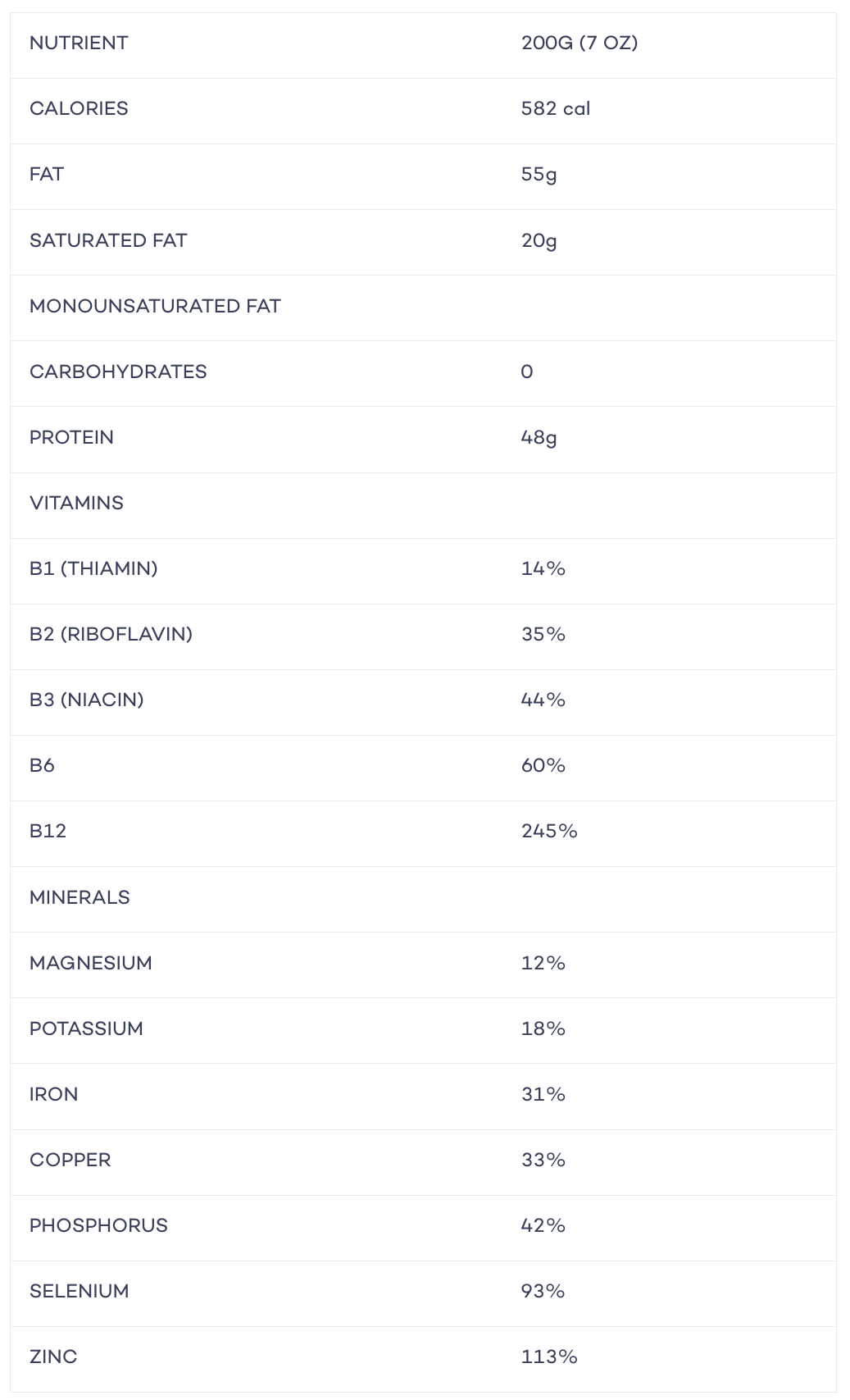
Anchovies are a nutrient dense food loaded with B3 and selenium and hard-to-get copper.
B3 plays an important role in turning the food you eat into useable energy. Selenium supports heart health and is crucial to healthy thyroid function [23] [24]
Fatty fish provide more omega-3 eicosapentaenoic acid (EPA) than most other fish including salmon.
When combined with selenium, Omega-3 can help prevent tumor growth and is used to treat various types of cancer [25] [26] [27].

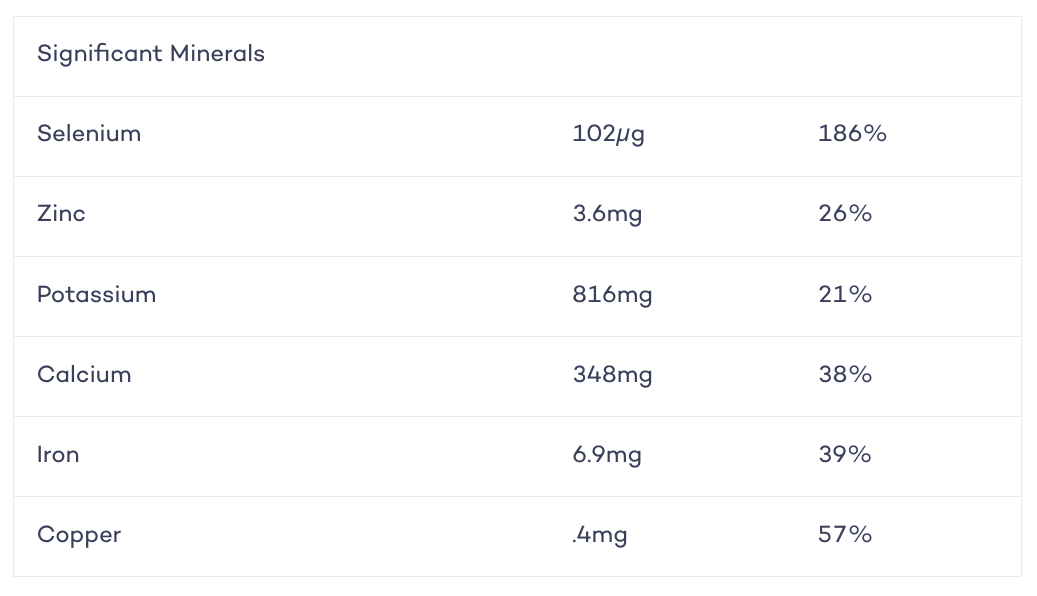
Beef kidney is an ultra-nutrient dense organ meat. Highlights include over 1000% of your B12 intake per serving, along with robust amounts of selenium, heme iron, and an important balance of copper and zinc.
In a demonstration of the like-supports-like properties of organ meats, kidney provides a rare amino acid L-ergothioneine, that promotes kidney health [28]. Kidney also offers the rare amino-acid Ergothioneine, known to support fertility [29].
The nutrient density of kidney made it a popular food among Inuit tribes. Arctic explorer Vilhjalmur Stefansson wrote, “The kidneys are usually given to children, somewhat as if they were candy” [30].
Kidney is also known for the special highly saturated fat surrounding it called suet [31]. This fat is high in stearic acid which has been shown to help reduce body fat and improve mitochondrial function [31].
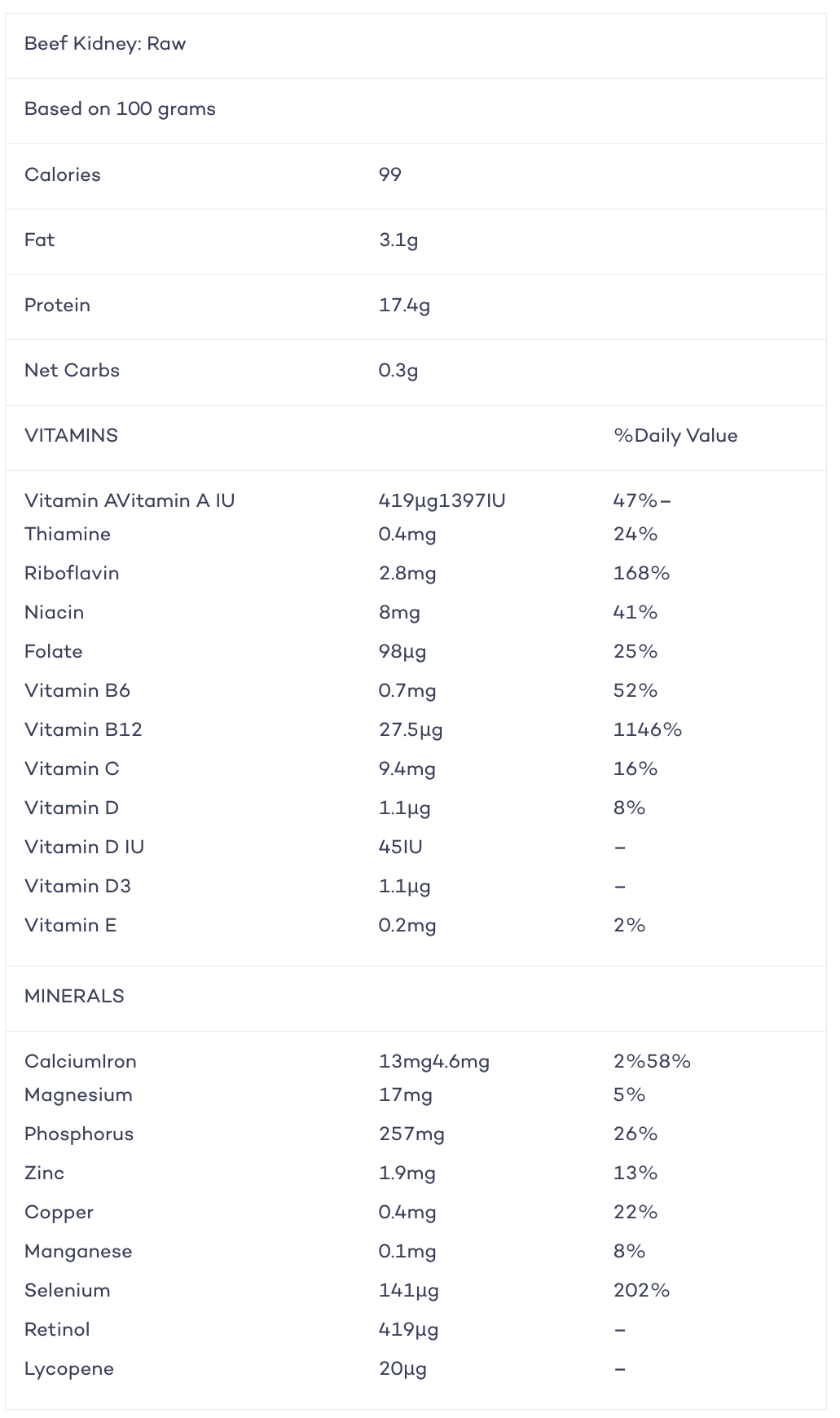
Pork belly is one of the most affordable highly nutrient dense foods. It comes from the same place on the pig as bacon, but it’s not cured or smoked, so it doesn’t have nitrites.
In addition to nourishing and satiating fats, including omega-3s and whole food proteins, pork belly provides significant amounts of many B vitamins and selenium [32]

Like the other nutrient dense meats on this list, lamb provides a rich profile of healthy fats, protiens, vitamins, and minerals.
Some of these vital nutrients and their roles include:

Eggs are an ultra convenient, ultra nutrient dense food. They offer a fantastic balance of healthy fats, proteins, vitamins, and minerals.
The choline content of eggs also makes them great for women who are pregnant or trying to become pregnant [35]

The most nutrient dense foods on earth offer robust blend of fat, protein, vitamins, minerals, along with rare amino acids and peptides.
Many of these foods are the center of nose-to-tail ancestral diets. The rich array of fat soluble vitamins in these animal whole foods is likely a factor in the robust health and absence of disease that pioneering dietician and dentist Weston A. Price first identified in ancestral diets nearly 100 years


We’re a global community of seekers, healers, and doers committed to reclaiming health on our own terms. When you join the Kiltz Mighty Tribe (KMT), you’ll gain access to education, support, and collective wisdom.

